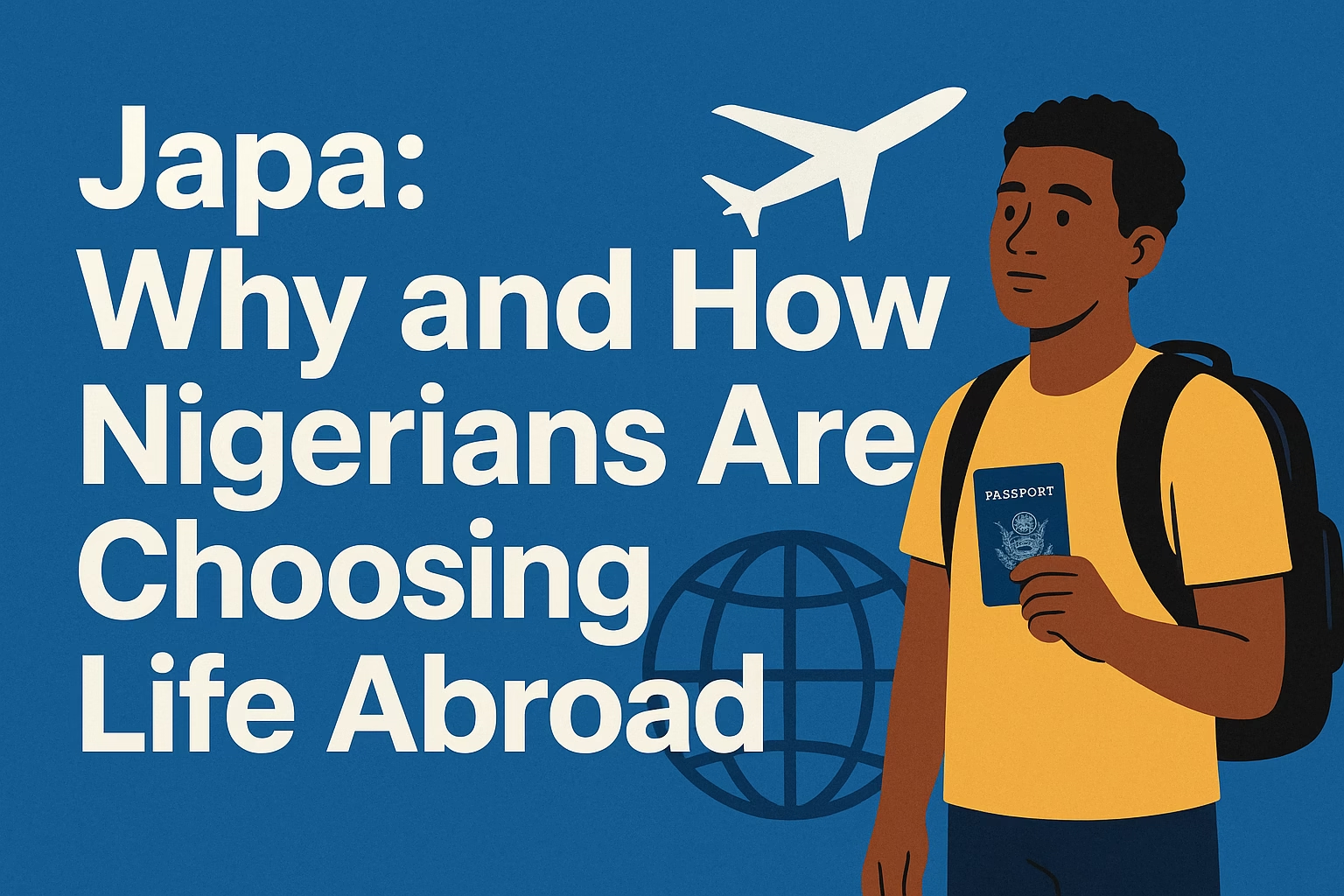
In today’s conversations, especially among young Africans, one word keeps popping up again and again: Japa. This Yoruba slang, which literally means to escape or flee, has evolved into a buzzword for migration, leaving one’s country (often Nigeria) in search of greener pastures abroad. But beyond the slang and social media trends, Japa is rooted in real human desires, challenges, and opportunities. Let’s break it down and explore why people japa, and how they go about it.
Why Japa?
Migration has always been part of human history, but in recent times, the “Japa wave” has become particularly pronounced. Here are the major reasons:
1. Economic Opportunities
Unemployment and underemployment are huge issues in many developing countries. Graduates often spend years searching for jobs, while inflation erodes the value of their earnings. The lure of stable currencies, higher wages, and better job markets abroad becomes irresistible.
2. Education and Skills Development
Many young people see foreign education as a ticket to success. Scholarships, international exposure, and access to state-of-the-art research facilities make studying abroad an attractive option. Parents also encourage children to leave, hoping they’ll secure brighter futures.
3. Better Quality of Life
Better infrastructure and security attract migration, while insecurity, corruption in leadership, and poor governance drive people away. For many families, japa is less about wealth and more about peace, dignity, and quality of life.
4. Global Networking and Exposure
Living abroad provides opportunities to connect globally, build international businesses, and engage with diverse cultures. This exposure can lead to both personal growth and professional opportunities.
How People Japa
While the desire to relocate is strong, the how is often the trickiest part. People pursue different routes depending on their skills, resources, and aspirations.
1. Education Route
One of the most popular methods is securing admission into foreign universities. This often involves passing language tests (IELTS, TOEFL), applying for scholarships, or self-funding studies. Students later transition into work permits and residency opportunities.
2. Skilled Worker Programs
Countries like Canada, the UK, and Australia actively welcome skilled professionals, doctors, nurses, engineers, and IT experts through points-based immigration systems. These programs make relocation possible even without prior study abroad.
3. Work Opportunities
Some people migrate through job offers, company transfers, or international recruitment drives. For example, healthcare workers from Nigeria and Ghana are in high demand in Europe and North America.
4. Family and Spousal Sponsorship
Family reunification is another pathway. Spouses, children, or close relatives who already have residency abroad can sponsor loved ones to join them.
The Other Side of Japa
While Japa offers hope, it also comes with challenges such as culture shock, homesickness, racism, and pressure to succeed. Many struggle to adapt, and success often demands as much effort as back home. Additionally, migration causes brain drain, depriving home countries of talent and slowing development, which in turn fuels further migration.
Final Thoughts
At its heart, Japa is about seeking better opportunities, safety, and dignity. Migration is a personal choice, not mere “running away.” The real issue is how home countries can improve conditions so staying is as appealing as leaving. Until then, the Japa trend will persist as a reflection of deeper social and economic challenges.






